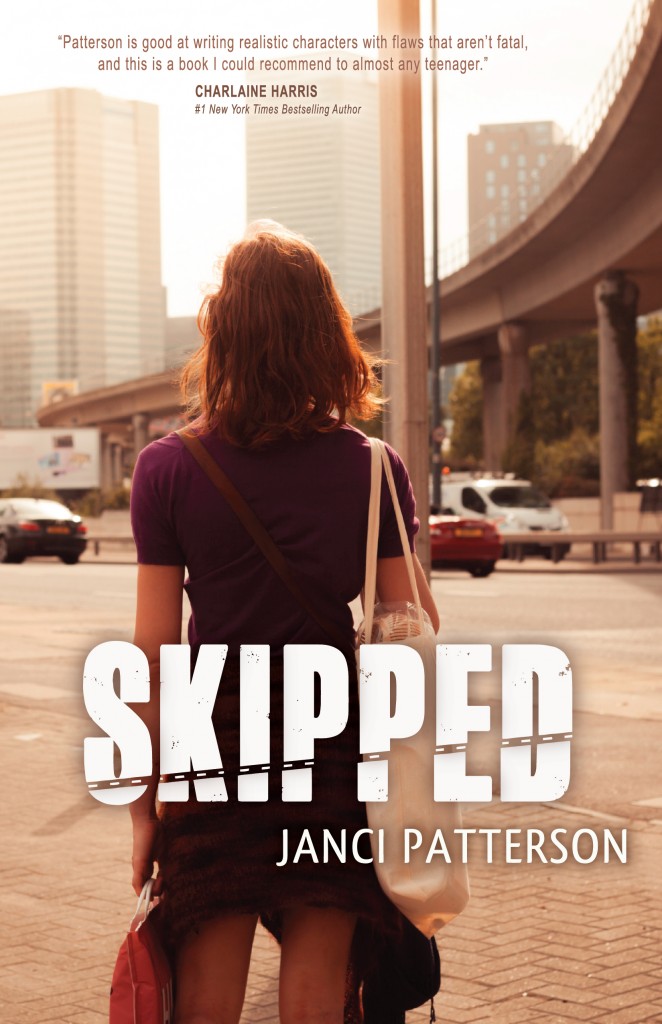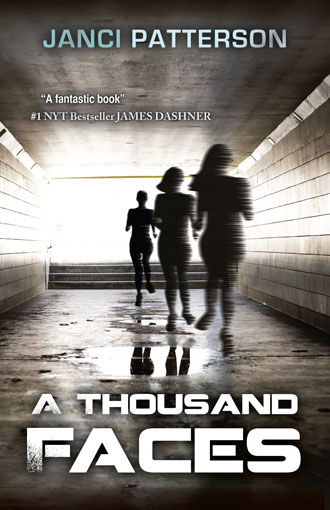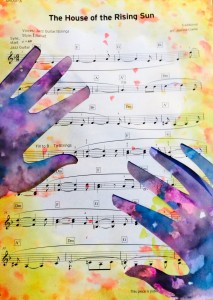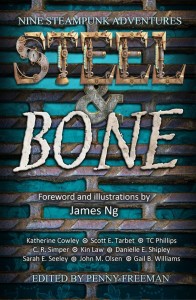Last weekend I was talking to a friend of mine who had just gotten some devastating news regarding one of her novels. We talked at length about how she should respond to this news, but as the conversation went on, it became clear that there were two problems at hand. The first was what she should do professionally to solve the problem with her book. And the second was, how could she continue in this business when every time hard news arrives, every time a book is finished on sub without selling, every time her hopes are dashed by rejection or failure, she can’t help but fall apart?
I’ve been there. In my now-sixteen years writing books, I’ve had a lot of disappointments. I’ve cried a lot of publishing tears. I’ve spent years and years wanting to quit. I’ve been completely and utterly miserable with my work and all the outcomes that came from it.
But now I’m happy.
And I’m not any more successful than I was when I was miserable–in fact, by some measures I am less successful.
And as I tried to deconstruct why that is–both to help my friend and to understand it myself, this is what I realized:
I am happy even though I am no more successful than I was because my success never was relevant to my personal happiness. I only believed that it was, and it was this false belief, not my failure, that made me miserable.
When you’re in the early stages of your career, writing and working and dreaming, it’s easy tie your personal happiness to the future of your career.
I will be happy when I finish the book. But you do, and it’s not enough to make you happy.
I will be happy when I’m ready to query. But you do, and you’re more nervous than ever.
I will be happy when I get partial requests. But you do, and the “hope” that you feel makes you even less secure.
I will be happy when I get full requests. But you do, and it doesn’t make you happy. You want more.
I will be happy if I can just get to where agents are writing to me personally, not sending form letters. But you get there, and it’s still not enough.
I’ll be happy when I sign with an agent.
I’ll be happy when I get a book deal.
I’ll be happy when I get another book deal.
I’ll be happy when I find another agent.
I’ll be happy when I see my book in the bookstore.
I’ll be happy when I get fan mail.
I’ll be happy when I win awards.
I’ll be happy when I make a best seller list.
I’ll be happy when I hit #1.
But you can do all these things (and if you do, yay for you!), but they won’t make you happy all by themselves.
Because your success or failure was never relevant to your personal happiness.
Here is the truth, going with the agent example: you can enjoy working with your agent, you can benefit from it, you can be grateful for it, you can profit from it–but your personal happiness, security, confidence, and self-esteem are not going to increase by signing with an agent. Why? Because having or not having an agent was never a factor your personal happiness, security, confidence, or self-esteem. Those things come from other sources, and not from having or not having an agent.
I am happy now (and was miserable then) because I retrained my brain not to tie my happiness, self-worth, or the value of my work to publishing outcomes. I had to, if I wanted to survive. This is the truth about the industry: it is a hellish roller coaster that chews up and spits out basically everybody. Even the very most successful authors I know have had their editors and agents leave the business at inopportune times, have lost or needed to leave an agent, have had books orphaned or abandoned by their publishers, have waited for years on end for business deals to move that never do, have had book after book rejected. Not every bad thing happens to everyone, but if you last long enough in this business, some of them will happen to you.
And, for me, the key to surviving, to continuing to write books and seek publication (both traditional and indie), and to damn-well be happy while I did it was to stop telling myself the damaging stories about happiness and replace those stories with healthy ones.
I’m happy, now, because I have healthy beliefs about what publishing can and cannot do for me. I have healthy beliefs about what I can get out of publishing and out of my work, and I don’t ask it to carry the burden of my happiness, self-worth, value, or other voids that publishing can never fill.
It’s a job. And it’s unfair to ask any job to take on that burden.
What follows are some examples of the thoughts I used to replace the unhealthy ones. I don’t know if they will be helpful to anyone but me, but I thought I would throw them out there just in case. Anytime I find myself feeling crushed by a failure, or feeling undue anxiety about the performance of a book on submission, during publication, or otherwise, I know I’ve lost my center. And I return to these stories, which, for me, are a balance of hope and realistic expectations.
- I hope that my book sells to a good publisher, because a publisher can potentially open doors for my work that I cannot open myself. I hope that my book sells to a publisher and is offered a good advance because the money would benefit my family, and it would be a privilege to work with a good editor on my book.
However, if my book sells to a publisher it will not mean it is a good book, because whether or not a book sells is not relevant to its value. There are many books of poor quality that sell; there are many books of great quality that do not. If my book does not sell, it will not mean that it is a bad book. A publisher has the power to decide whether or not they will offer to publish my book and how much money they will offer, but not whether or not my book is of quality or has value.
- I hope that I will be able to work with–or continue to work with–a good agent, because I think that having an agent is valuable to my career, opens opportunities I would not otherwise have, and helps me to maximize my product and earning potential as a writer. However, signing with–or retaining, or pleasing–an agent will not make me feel like a real writer, because having–or keeping–an agent is not relevant to my self-identity as a writer.
Losing or being rejected by an agent does not make me a hack, or a bad writer, or a hopeless case, because having–or being liked by, or keeping–an agent is not relevant to my value as a writer. I hope to have a long and healthy relationship with an agent. But if I do, I will be about as happy as I am now. And if I don’t, I will still be about as happy as I am now, because having an agent is not a contributor to personal happiness.
- I would like my book to sell well because I want to share it with readers–that’s why I wrote it in the first place. Also, I hope it will sell well because I could use the money for my family, and to facilitate my continued work. However, good sales will not make me happy, because book sales are not a relevant factor in my personal happiness. Poor sales will not destroy my happiness because book sales are not a relevant factor in my personal happiness.
Whether my book sells well or not, I will be about as happy as I am right now because my happiness is influenced by other factors in my life–not by my book sales. I hope my book does well, but whatever happens, I will be okay. Book sales do not have the power to make me okay, or to make me not okay.
- I work hard on my books because I get a sense of accomplishment out of the work, because I feel better when I am productive, and because I get a sense of satisfaction out of a completed product. Therefore I will write today because I want writing to be done, and because doing so will help me progress as a writer. But I am not going to do it because I think it will give me control over my life, or because I think the external results (acceptance, sales, awards, etc.) of my writing will make me happy, because the external results of my writing have never had power to make me happy, and producing words only grants me power over my ability to produce words, and not over any other aspect of the industry, my life, or my career.
- I have no control over the outcomes of my efforts, and that is okay, because outcomes have no power over my personal happiness. I do have control over my personal thoughts and actions, and that’s good, because my personal thoughts and actions do have an influence on my personal happiness.
I’d like to be clear that I have not abandoned hope. It’s so tempting to try to squash hope so that you don’t feel disappointed, but this really isn’t a path to happiness either. This is because I’m not sure it’s possible to write a novel without some hope for its future. The key is to have that hope without heaping unnecessary burdens on top of that hope–hope that publishing will fix you. Because it can’t, and it won’t, and asking it to do so isn’t fair to anyone, especially yourself.
After reaching a breaking point–a rock bottom where I couldn’t imagine where I would find the creative energy to write another novel, I had to take a hard look at what writing and publishing were adding to my life. And this is what I learned:
For me, writing books does affect my personal happiness, because the work and the stories are important to me. The sense of accomplishment I get out of finishing difficult tasks, overcoming obstacles, carving out time, solving plot problems and creating a novel I am proud of gives me confidence and a sense of progression and identity that I don’t get out of any other work that I do in my life.
I am proud of my work, regardless of the outcomes in the publishing industry. Continuing to write books sometimes frustrates me, the results often disappoint me, and the work itself is frequently difficult. But the work I do in my own time is under my control, and is relevant to my personal happiness. I experience that happiness best and most fully when I focus on my own work, and do not hand power over my happiness to external factors that are out of my control.
And, finally, my work, in the end, is only one small part of my general happiness. In truth, the grand majority of my happiness comes to me through my family, through my faith, through self-care, through service to others, through my friendships, through play, and through healthy living.
When I do mental housecleaning and make sure that the stories I am telling myself are healthy ones–even if it means repeating that story to myself each and every time I sit down to write, each and every time I interact with the industry, each and every time I turn on the internet–then I’m able to be happy, no matter what happens external to me. When I am centered in healthy thoughts, assigning my happiness to things that can actually contribute to it and not mirages that are not relevant, no failure can destroy me.
It’s not easy to learn to think differently. Doing so takes a lot of work (and, in some cases, a therapist. And, if the problem is clinical, sometimes also medication, because some negative thought patterns are actually symptoms of mental illness.) But for me, anyway, learning to change my own beliefs gave me control over my own work in a way that I’d never thought possible. It allowed me to continue working, and not quit. And I did so not because my worth hinged on it, but because it’s what I wanted to do.
I’m happy now, and I wasn’t before. And if I never achieve any more success than I have at this very moment, I can be satisfied with that.
And that, friends, is real happiness– the kind that lasts.
so if you’ve read the book and feel inclined, I’d love it if you’d pop over and leave one.









